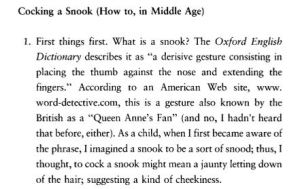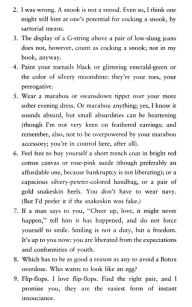Susan, a friend and a fellow missionary kid, has written of a time of terror, a moment of fear, when she was four or five years old. She starts her story like this:
The early 1960s in Indonesia were years of political upheaval. The Communist party was strong and growing in power. There were protest marches in our city against Malaysia and against the British. I remember the air raid drills in Surabaya when I was 4 or 5 years old. The siren would blow and every light had to be turned off. We sat in the dark until the siren blew again. If it happened during dinner time, Mom put a sock over a flashlight and fed my baby brother by its faint glow.
One night while we were sleeping, someone painted anti-British signs all over the front wall of our house, right outside the window of my bedroom. My dad asked Supii, who worked at our home, to clean the wall. I didn’t know at the time what all of those signs meant but I watched as they slowly disappeared behind the layers of whitewash.
I have a similar story to start out telling.
The late 1960s in Vietnam were years of political upheaval. The Communist party was strong and growing in power. There were protest marches in America against the Pentagon and against the President. I remember the ARVN field drills in Thủ Đức when I was 4 or 5 years old. The smell of tear gas would overwhelm the pungency of red earth. We watched from the ditch along the dirt road, the smoothest surface for us neighborhood kids to chơi bi (“play marbles”). If it was closer to dinner time, Mom would call us into the yard of the house protected by fencing of barbed wire.
One night while we were sleeping, machine gun fire and bursts of rockets erupted next to our house, right outside the window of my bedroom. My dad had carried me and my two siblings into the bathroom where we hid under a mattress with my mom. I didn’t know at the time what all of the racket meant on this Tết Nguyên Đán (Lunar New Year 1968).
Susan goes on with what happens next. When I read these two paragraphs a couple of days ago, I was deeply moved.
I couldn’t sleep one night. I imagined someone was standing outside my window. When I called out to my dad and told him I was afraid, he took me outside onto our front porch.
It was dark and quiet. No street lamps. We looked up. Dad pointed out God’s creation—the moon, the stars. They were bright in the night sky. He reminded me of God’s presence with us. There was no need to be afraid. I felt peaceful, no longer fearful. I went back to bed and fell sound asleep.
I was taken back by Susan’s story to a moment when my dad was battling the cancer that came into his lungs when he and my mom were back in Vietnam. It was their first trip there after the war. They had returned with dear friends, Vietnamese orphans who had escaped Vietnam and had grown up in America, and with the orphanage director and his wife, who had led their escape. Dad’s fight against the disease started with a cough that wouldn’t go away. They were in a bus on a pungent dirt road. Or he was out talking with folks, laughing with them, recalling Vietnamese phrases long since pushed away by bits of Mandarin and Cantonese, by Karo Batak, by Bahasa Indonesia. He found his Vietnamese voice again while praying in the floor, with a new friend, diagnosed with HIV-AIDS. Dad was coughing. Praying and coughing. It was later diagnosed as a late stage disease, spread into the spine and as multiple tumors in the brain. At their home in the USA, Dad agreed to go outside for a walk. Under the big Texas sky he reminded me of God’s presence with us. There was no need to be afraid, he said.
But the story rewinds further back to just after Tet 1968.
I couldn’t sleep one night. My dad, who stayed in our house in Vietnam, had come for a two week visit with our family in our high rise apartment in Thailand.
I had been caught smashing the tile roofs of the houses below the balcony of our apartment. I had enlisted the help of another missionary kid to gather big rocks into the elevator and onto the landing, for this very purpose. Dad had punished me as a good father should, and on top of that I was banished from the swimming pool for two weeks. Worse, he had made me go with him to apologize to the families whose homes had been damaged. That night I could not get the unhappiness registered on their faces out of my head. If I was truly sad for them, I recall being afraid that they might somehow retaliate.
Now I’m telling my stories backwards, in reverse. My family has laughed many times together about my little missionary kid mischief and my responses to Dad’s punishment. What I’m recently impressed with, nonetheless, is how deep the impact of trauma on us humans at any age and how kind God is to bring us to places of healing, usually in the face of fear.





